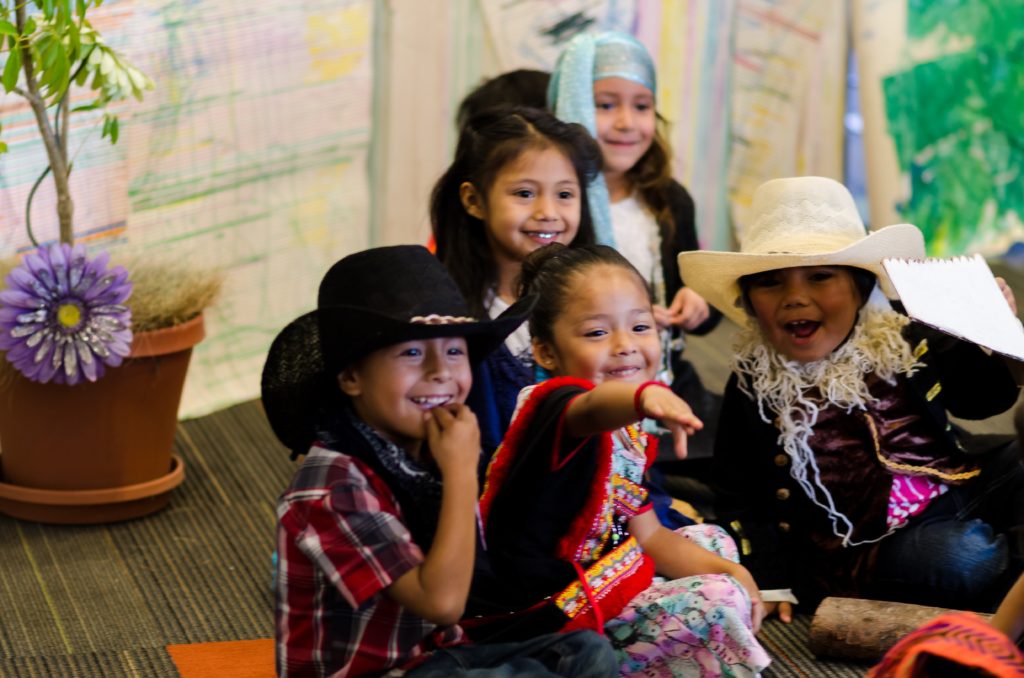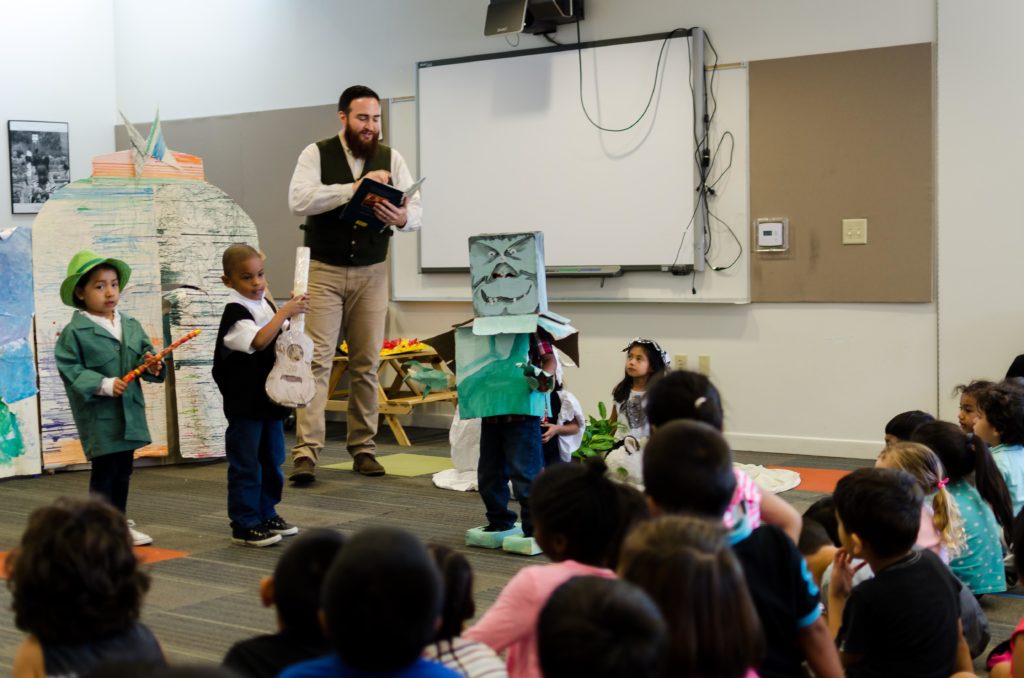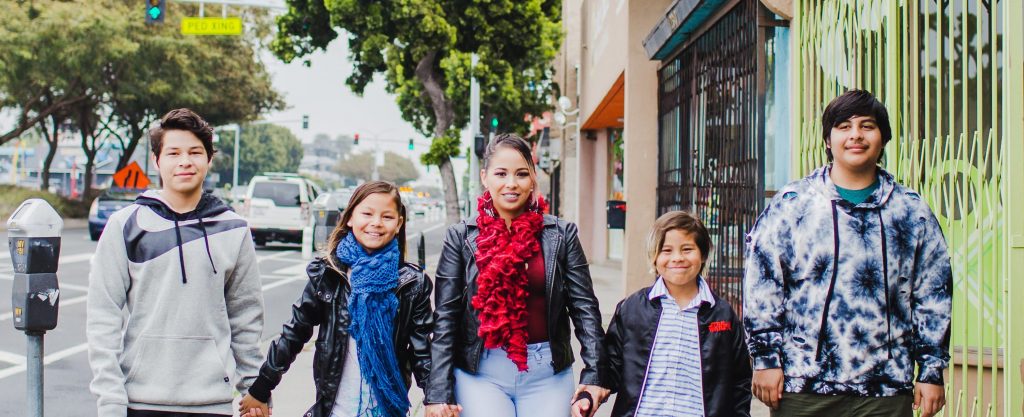Teachers Alex and Thuy designed Classroom 8’s Abiyoyo unit to focus on critical thinking and elements of literacy, like comprehension, recall, sequencing, and story flow. They knew that children’s early interactions with literacy materials, like paper and books, shape kids’ capacities for developing language, reading, and writing skills. The teachers also suspected their students would love the story about the giant Abiyoyo, just as other kids at the Center had.
And they did. The students began making observations and asking questions about the story during other lessons. Soon, they were imitating characters and acting out whole scenes. At pickup time, parents asked, “What is Abiyoyo?” Embracing the intentional flexibility of every lesson to foster self-directed learning, Thuy and Alex kicked off an extended, multidisciplinary unit that incorporated art, literacy, STEM (science, technology, engineering, and math), and social-emotional skill development – guided entirely by student interest.






